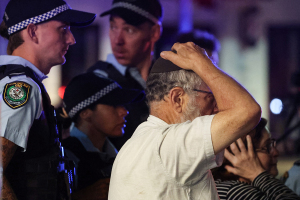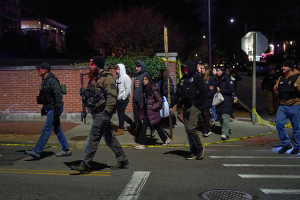Presbyterians Plan 'Reorientation' for Global Christian Relations
Presbyterian leaders held their first major consultation since 1983 on Friday to map out the direction in which the denomination will engage with the wider Christian Church over the next decade.
The Presbyterian Church (U.S.A.) has played an active role in the Protestant ecumenical movement over the past century but maintaining their historic leadership in religious unity "will require a major reorientation and recommitment," said PC(USA) head Clifton Kirkpatrick.
"We need to recapture a passionate vision in the PC(USA) for the unity of the church, which now seems to recede into the background," he said at a three-day gathering sponsored by the General Assembly Committee on Ecumenical Relations (GACER), according to the Presbyterian News Service.
While he acknowledged the Presbyterians' leadership in ecumenism, Kirkpatrick addressed the need for a new plan for the future of church relations across denominational lines.
"The key question today is whether we will be remembered for our leadership in the ecumenical movement in the next 100 years as we have in the past 100," the Presbyterian leader said.
Kirkpatrick's comments come as church bodies worldwide prepare for the 100th anniversary celebration of the 1910 Edinburgh World Mission Conference, widely seen as the formal beginning of the modern ecumenical movement.
World Council of Churches (WCC) general secretary the Rev. Dr. Samuel Kobia has called for a "new Edinburgh" in 2010 involving today's newer and most dynamic mission movements and Christian traditions and acknowledging Christianity's new face. WCC claims to be the broadest and most inclusive ecumenical organization in the world with a membership of more than 340 churches representing some 550 million Christians.
This past week in Louisville, Ky., Presbyterians met to devise a plan to "provide vision and direction for the church's engagement with the wider body of Christ," said GACER chair Ed Chan, according to PNS. "I want something bold to come out of our time together because the church needs it."
Some of the challenges Protestants face for 21st century ecumenism include reconfiguring the ecumenical movement for a post-modern church and world and ecumenical formation for a new generation, as Kirkpatrick listed.
Reconciliation with people of other faiths and broadening ecumenical conversations to include those who have shied away from traditional ecumenical groupings are also challenges for the next century of worldwide religious unity.
Kirkpatrick recently announced that he will step down as stated clerk of the PC(USA) General Assembly at the end of his third term next year. He hopes to devote himself more fully to his presidency at the World Alliance of Reformed Churches – the global fellowship of 75 million Reformed Christians in 214 churches in 107 countries.



























